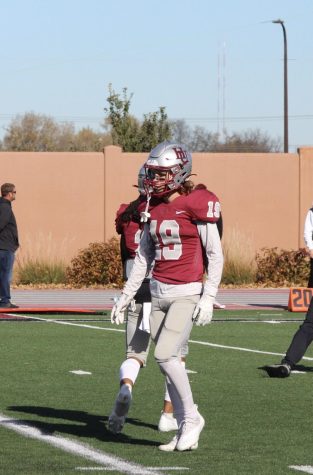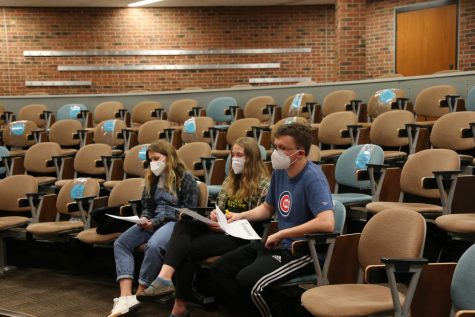Conversations of inclusion continue
Eight weeks of athlete inclusion groups were the beginning of an initiative started by Rachel Pierce, Coordinator of Athletic Operations. With the support of the community, these groups created a space for traditionally disadvantaged athletes to share their perspectives with their peers.
April 27, 2022

in the planning and coordination of some of the later inclusion groups.
What began as a series of relaxed lectures and conversations within the student athlete community is now the stepping stone into the future of Hamline’s diversity and inclusion initiatives in the Athletic Department. Rachel Pierce, Coordinator of Athletic Operations at Hamline, has spearheaded the effort to create a dialogue within the student athlete community about inclusion.
The inclusion groups, which occurred every Thursday night for eight weeks beginning in February, aimed to be educational spaces in which students from communities such as BIPOC athletes, first-generation college athletes, women and LGBTQ+ athletes could come and share their experiences, as well as learn about others.
“I have loved being exposed to these new perspectives and experiences from individuals that may not come from a position of privilege like myself as a straight white cisgender male who was raised upper-middle class. Ever since I left my home town to come to school here, I have been eager to gain new perspectives in order to become a more knowledgeable and critically aware individual,” junior Cameron Ragen on the cross country and track team said in an email.
Prior to the pandemic, there had been the occasional speaker that visited the AD to speak to Hamline athletes, but nothing as consistent as the inclusion groups initiative. While it is still a work in progress, the progress does not seem to be slowing down anytime soon.
“We might start groups of, or welcome spaces for, BIPOC athletes, for LGBTQ+ plus athletes, and develop those spaces more so and then maybe keep the educational part too, and keep going with the groups but maybe focus more on mental health within those spaces and wellness and stuff like that,” Pierce said.
Affinity groups that focus on communities such as Pierce named do exist already on the Hamline campus, but many athletes find it difficult to attend meetings and be a part of those clubs.
“Yes, there are certain groups on campus already, take for example there’s a first gen club already on campus, but these groups are primarily working around student athlete schedules. I know with my schedule I could never make a first gen board meeting because I have practice until eight pm at night or I have homework after practice, I’m working two jobs,” sophomore Caleb Lueders from the football team said.
The community that these groups offer to the student athlete community are unlike anything many athletes are able to find off the field or outside the classroom.
“I think it is really great to share struggles and give advice,” junior Miranda Ekleberry of the cross country and track team said. “We had an inclusion group on the LGBT community and that was the first one I actually went to, and we were exchanging experiences that we had in high school, things that have happened with teammates and coaches and comforting each other, like a community.”
Not only do these experiences offer community support and friendship opportunities, but they also offer resources to athletes they might not otherwise know about.

“A big goal of it is making sure we give the ability to hand out resources to people and let people understand what the resources there are on this campus because as an athlete, you may not understand, or even as a student, you may not understand all of the resources you have on this campus, whether it’s the Career Development Center or free health and counseling services,” Lueders said.
Lueders is a student leader in this initiative and was in charge of running the last first-gen inclusion group meeting. He works at the front desk of Walker and has known Pierce since she was first hired in August of 2021.
“The goal was definitely spreading news and spreading awareness and giving appreciation to that group, first gen athletes,” Lueders said. “This last class will have 52% first-gen, so we’re definitely a university that is a lot different than others and we want to take pride in that.”
These initiatives are in no way slowing down and athletes are encouraged to continue to look for upcoming programs to build community and support. Being a part of an underserved community is difficult and the athletic community wants Hamline students to know that they are not alone and without support.
“Being a first-gen student is scary because you don’t know who to turn to, who to ask questions to and we wanted to recognize that,” Lueders said. “We also want to cover bases of how to make everybody feel included and make sure students were able to go to each other and give a helping hand if we can.”
